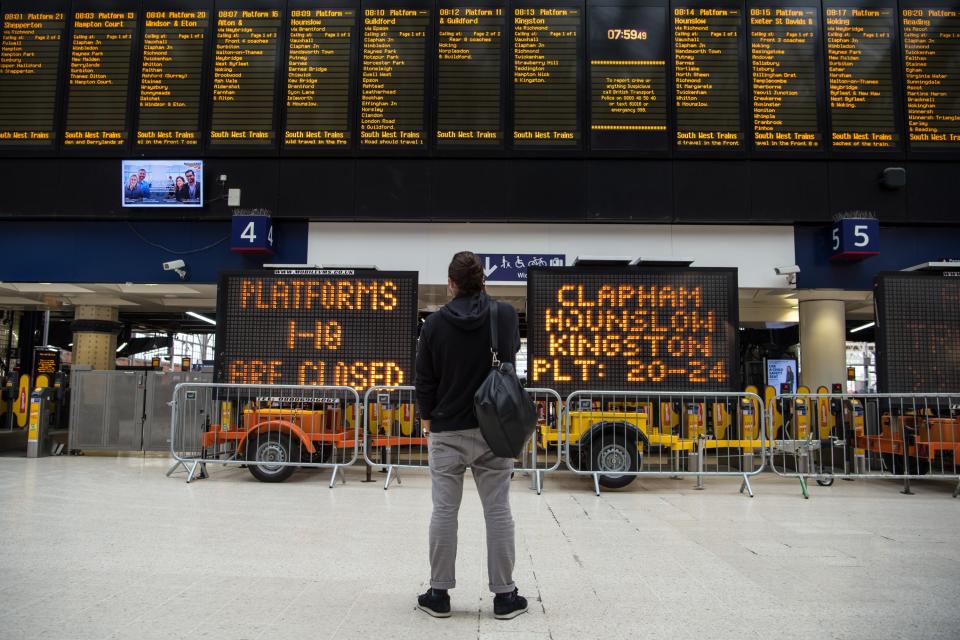Commuters face rail fare hikes of hundreds of pounds on back of 3.6% inflation figure

Rail fares are to rise by “hundreds” of pounds from the new year following the publication of official inflation figures.
The crucial Retail Price Index for July – by which fare hikes are set – stood at 3.6%.
That means train companies can increase regulated fares – such as season tickets and standard returns – by the same percentage.
MORE: Rail fares have risen ‘twice as fast as wages since 2010’
These tickets account for almost half of sold, potentially adding hundreds of pounds to a season ticket for millions of commuters.
Rail companies do not have to say by how much they are upping fares until later in the year – but if they stick to past practice, increasing them in line with RPI, it will represent the largest rise in five years.
Stephen Joseph, chief executive at Campaign for Better Transport, called on the government to use the Consumer Price Index (CPI) measure of inflation to set rail fares.
MORE: Fare splitting: how it works and how much you can save on train tickets
CPI is generally lower than RPI and is used to calculate changes in benefits.
“This rise will be the highest since 2013, and will leave many commuters struggling to meet the cost of their commute next year,” said Joseph.
“Passengers would be forgiven for thinking they are being taken for a ride when RPI has been dropped as an official measure for most other things.”
The RMT transport union said on Monday rail fares have risen twice as fast as wages since 2010.
It laid the blame squarely at the door of the government. RMT leader Mick Cash said: “The huge hike in fares confirmed today is another kick in the teeth for passengers who already fork out colossal sums to travel on rammed out, unreliable trains while the private operators are laughing all the way to the bank.
“With over three quarters of Britain’s railways now in the hands of foreign states these huge sums of money aren’t being invested in essential upgrades and modernisation here, they are being siphoned off to subsidise transport services over the Channel.”
Calculations by the Campaign for Better Transport show a season ticket from Basingstoke into the London terminals costs £4,308 in 2017, and will cost £4,463 in 2018, if the full 3.6% rise is imposed.
A season ticket from Cambridge to London costs £4,780 in 2017, and will cost £4,952 in 2018, while a season ticket from Reading costs £4,308 in 2017 and will cost £4,463 in 2018.
Fewer than half (47%) of passengers are satisfied with the value for money of train tickets, according to the latest survey by passenger watchdog Transport Focus.
It has been the policy of successive governments to reduce the funding of the railways by taxpayers and increase the relative contribution of passengers.
MORE: UK inflation holds steady in July as price pressures ease
A spokesman for the Department of Transport earlier this week said the government “carefully monitors” how rail fares and average earnings increase.
“We are investing more than £40 billion into our railways to improve services for passengers – providing faster and better trains with more seats,” he said.
The Consumer Prices Index climbed 2.6% year on year in July, unchanged from June.
The ONS said the price of motor fuel continued to fall and provided the largest downward contribution to change in the rate between June and July.

 Yahoo Finance
Yahoo Finance 
